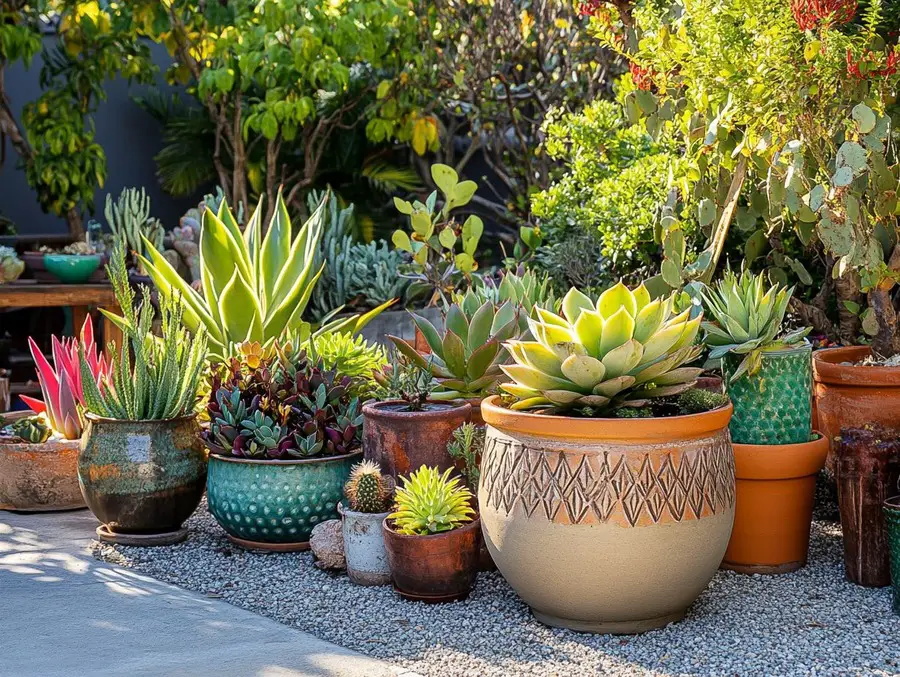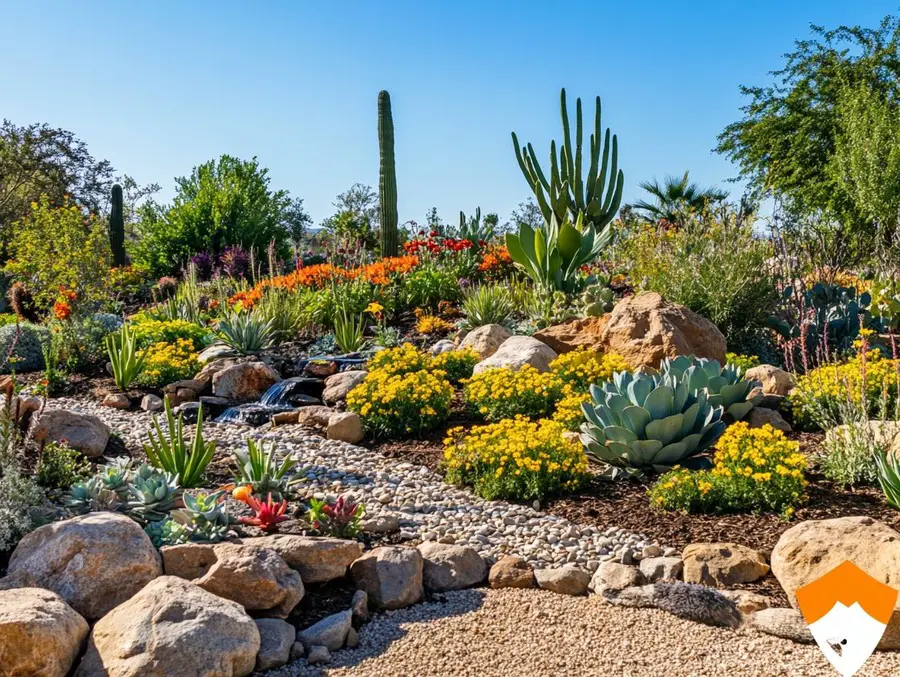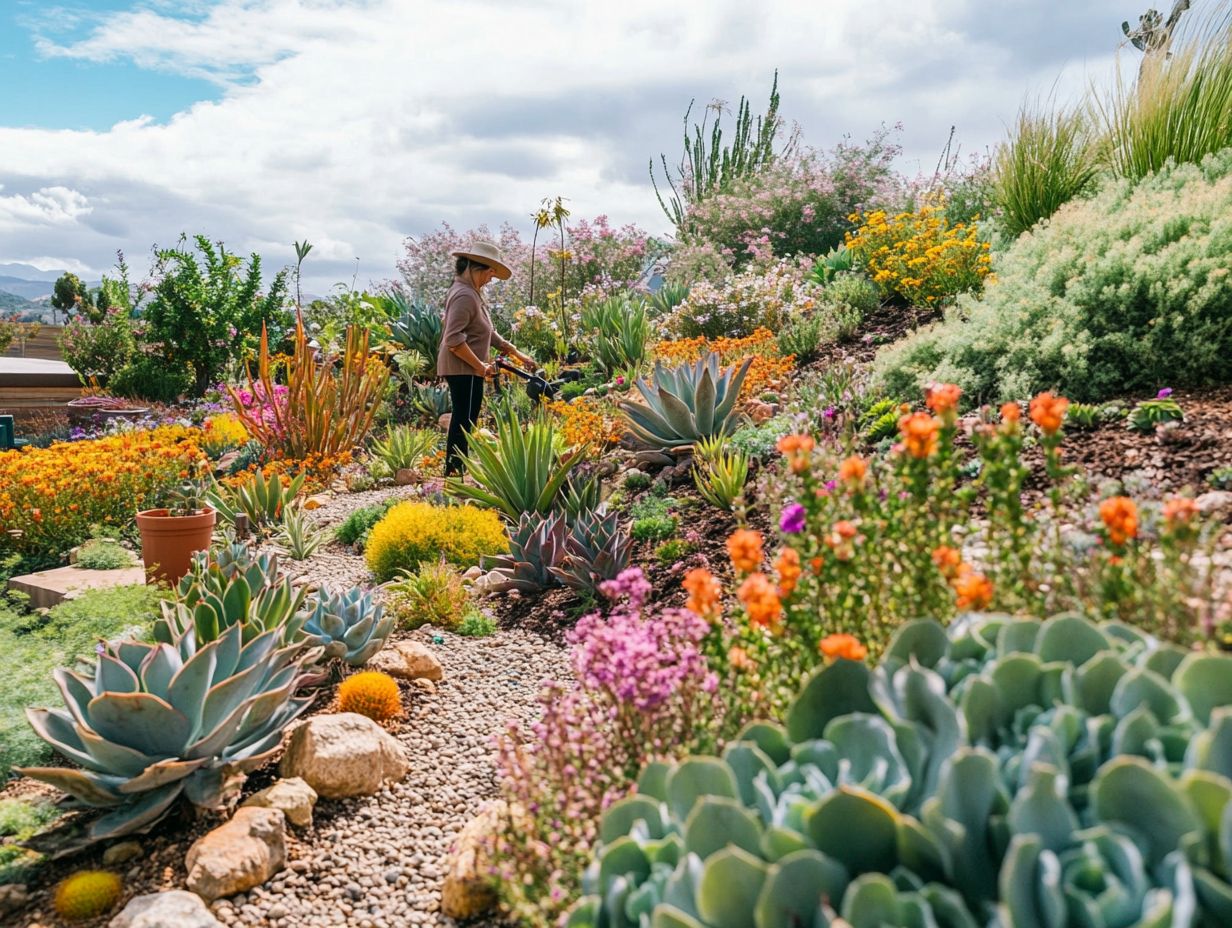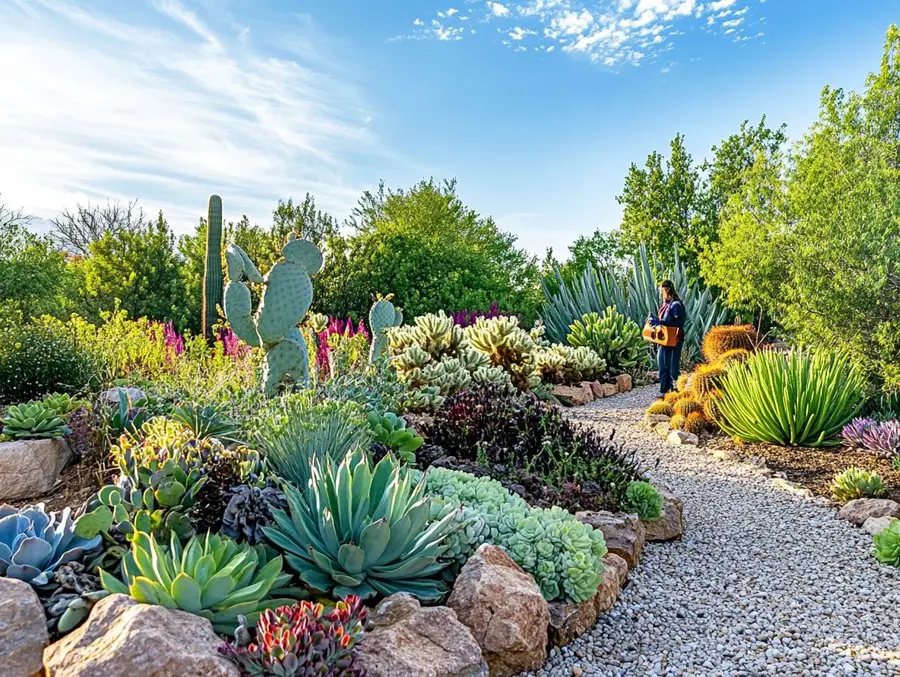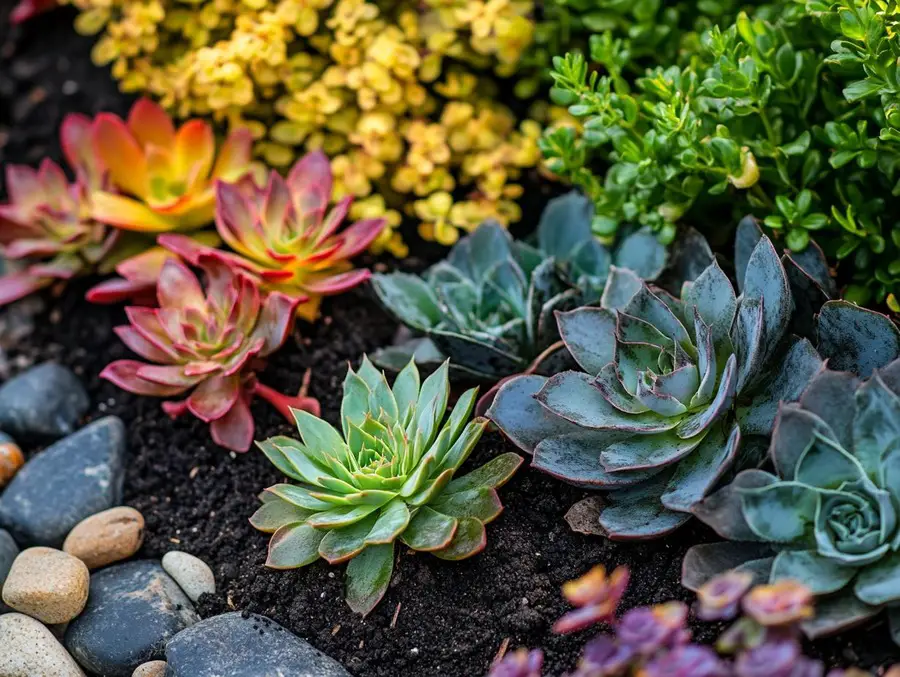We use affiliate links. If you purchase something using one of these links, we may receive compensation or commission.
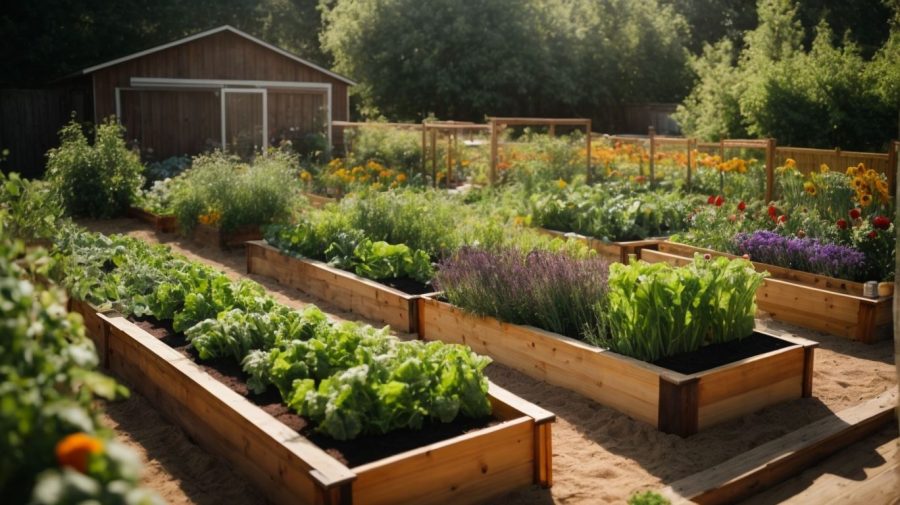
What is backyard gardening? Discover the joys of growing your own lush oasis at home with a beginner-friendly guide to backyard gardens!
What is Backyard Gardening? Key Takeaways:
- Backyard gardening is the practice of cultivating plants, including vegetables, flowers, and herbs, in the space available in one’s backyard.
- It allows individuals to produce fresh, organic food, beautify their outdoor area, and engage in a relaxing and rewarding hobby.
Have you ever considered starting your own backyard garden? Backyard gardening involves growing plants, flowers, and vegetables in the comfort of your own outdoor space.
In this article, we will explore why backyard gardening has become increasingly popular, how you can start your own garden, the numerous benefits it offers, and how to effectively maintain it.
From promoting sustainable living to providing fresh produce and creating a beautiful outdoor space, backyard gardening has a lot to offer.
Let’s dive in and discover the world of backyard gardening!
What is Backyard Gardening?

Backyard gardening refers to the practice of growing vegetables, plants, or flowers in the outdoor space adjacent to one’s home, creating a natural oasis for nurturing and cultivating various flora and fauna.
It offers a myriad of benefits beyond the sheer beauty it adds to the surroundings.
Backyard gardening allows individuals to have easy access to fresh produce, promoting a healthier lifestyle.
The versatility in plant selection enables gardeners to experiment with different species, from vibrant flowers to nutritious vegetables.
Engaging in this practice fosters a deep connection with nature, providing a sense of tranquility and fulfillment as one witnesses the growth and development of their plants.
Why is Backyard Gardening Popular?
Backyard gardening has gained popularity due to its multifaceted advantages, including providing fresh and nutritious food for families, fostering environmental sustainability, promoting community engagement, and offering valuable educational experiences for children.
One of the main reasons for the surge in interest in backyard gardening is its direct impact on family health.
By growing their own produce, families have easy access to fresh, organic fruits and vegetables, which are known to be more nutrient-dense compared to store-bought options.
This translates into healthier eating habits and an overall improvement in well-being.
In addition, the practice of backyard gardening aligns with environmental consciousness efforts.
By growing food at home, individuals reduce their carbon footprint by minimizing transportation emissions associated with store-bought produce.
This localized approach to food production also encourages the use of sustainable gardening practices, such as composting and water conservation.
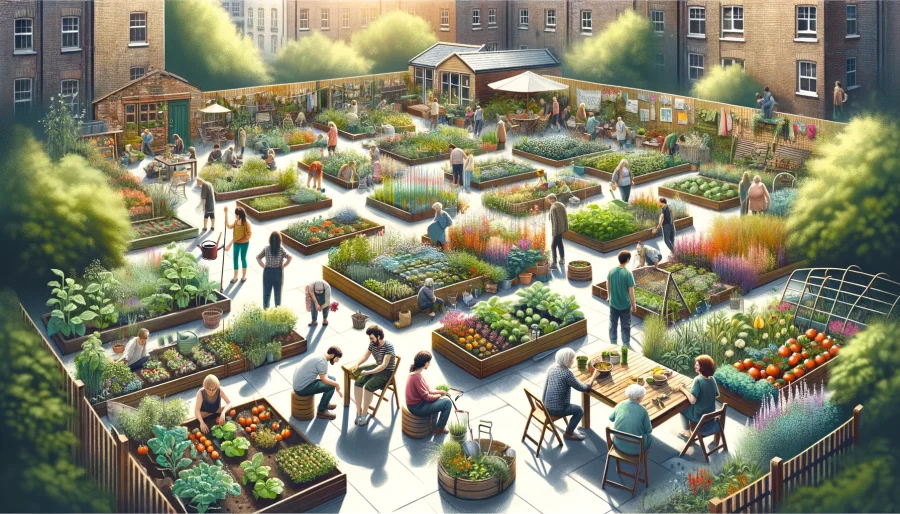
Furthermore, backyard gardening serves as a catalyst for community bonding, bringing neighbors together through shared interests and collaborative efforts.
Community gardens, in particular, provide a gathering space where people can exchange gardening tips, share surplus produce, and build lasting relationships that extend beyond the garden walls.
For children, backyard gardening presents numerous educational opportunities that go beyond the classroom.
Through hands-on experience, children learn about plant life cycles, environmental stewardship, and the importance of healthy eating.
Gardening fosters creativity, patience, and a sense of responsibility, all of which are valuable life skills that contribute to their overall growth and development.
Promotes Sustainable Living
Backyard gardening plays a vital role in promoting sustainable living practices by reducing reliance on store-bought produce.
It minimizes carbon footprints associated with food transportation, and fosters a deeper connection to the environment through organic farming methods.
Moreover, sustainable gardening significantly contributes to reducing environmental pollutants by avoiding the use of harmful chemicals and pesticides commonly found in commercial agriculture.
By prioritizing composting practices, gardeners can also effectively manage organic waste, turning it into nutrient-rich soil that enhances plant growth while minimizing landfill contributions.
This conscious approach not only ensures fresher, more nutritious produce for households but also enriches the soil, promoting biodiversity and supporting local ecosystems.
As more individuals engage in backyard gardening, there is a positive impact on the local economy, creating opportunities for community-based commerce and reducing reliance on mass-produced food chains.
Saves Money on Groceries
One of the key reasons why backyard gardening is popular is its potential to save money on groceries.
By growing one’s produce at home, reduces the need for frequent trips to the store and ensures a fresh supply of nutritious fruits and vegetables.
The affordability of planting seeds at home offers significant cost savings in comparison to purchasing fully grown plants from a nursery.
This initial investment in seeds can yield a bountiful harvest of fresh, organic produce, significantly reducing monthly grocery expenses.
The versatility of backyard gardening allows individuals to cultivate a wide variety of crops tailored to their dietary needs.
Thus enhancing the nutritional value of meals by providing access to homegrown fruits and vegetables packed with essential vitamins and minerals.
Provides Fresh Produce
Backyard gardening offers the advantage of providing fresh produce right at home, ensuring a daily supply of nutrient-rich fruits, vegetables, and herbs that contribute to improved air quality and enhanced nutritional intake for individuals and families.
The convenience of having a home garden means you can simply step outside to pluck ripe tomatoes or crisp lettuce for your salad, guaranteeing not only freshness but also the peace of mind that comes with knowing exactly how your food was grown. Homegrown produce is free from harmful pesticides and chemicals typically used in commercial agriculture, making it not only better for your health but also for the environment.
The act of gardening itself can be a therapeutic and fulfilling hobby, promoting mental well-being and reducing stress levels.
Reduces Carbon Footprint
By promoting localized food production and reducing the carbon footprint associated with transporting produce over long distances, backyard gardening contributes to environmental preservation, supports climate health, and strengthens community ties through shared sustainable practices.
Engaging in backyard gardening helps individuals directly witness the process of food cultivation, fostering a deep connection to nature.
This hands-on experience not only educates about sustainable living but also instills a sense of responsibility towards the environment.
- As more communities embrace backyard gardening, the collective impact of these smaller-scale initiatives contributes significantly to reducing overall greenhouse gas emissions.
- Such activities encourage a sense of enablement among individuals, as they actively participate in environmental conservation efforts right in their own homes.
How to Start a Backyard Garden?
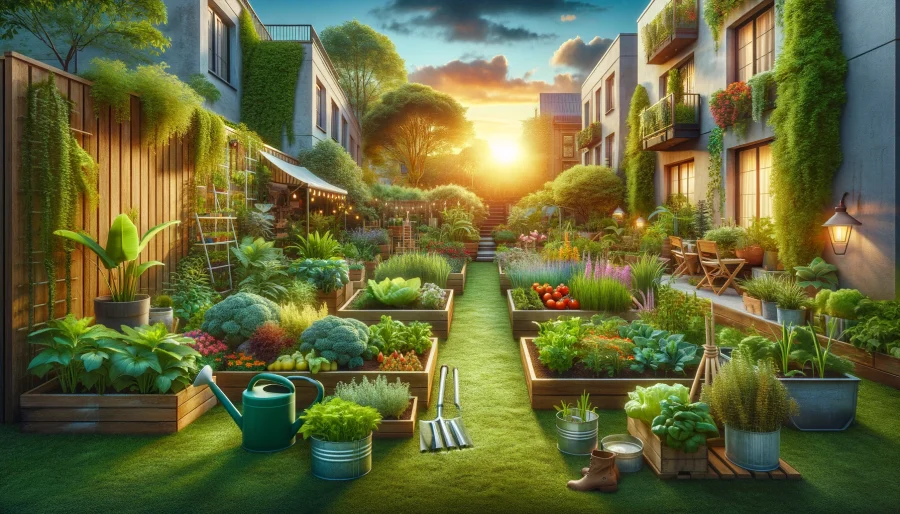
Starting a backyard garden involves several fundamental steps, including selecting the right location, preparing the soil, choosing suitable plants and seeds, and ensuring adequate sunlight and space for optimal plant growth.
One of the key aspects to consider when selecting the right location for your garden is the amount of sunlight it receives.
Most plants require at least 6-8 hours of direct sunlight daily to thrive.
Ensure that the location has good drainage to prevent waterlogging, which can lead to root rot.
Once you have identified the perfect spot, move on to soil preparation.
Choose the Right Location
Selecting the ideal location for a backyard garden is crucial, considering factors such as available space, sunlight exposure, soil depth, climatic conditions, and the presence of any existing patio or outdoor structures that may impact plant growth.
When deciding on the garden’s location, it’s essential to ensure that there is enough space for the plants to grow without being overcrowded.
Different plants have varying space requirements, so understanding the needs of the specific plants you intend to grow is vital.
Sunlight exposure is another critical factor as most plants require ample sunlight to thrive.
Analyzing how the sun moves across your yard throughout the day can help determine the best spots for planting.
Assessing the soil depth is crucial; some plants have deep roots and need deeper soil for optimal growth.
Climate suitability is also key; certain plants thrive in specific climates, so knowing your region’s climate will guide your plant selection.
Taking into account existing outdoor features like patios is important as they can affect sunlight exposure and create microclimates that impact plant health.
Decide on the Type of Garden
Determining the type of garden layout, whether traditional beds, raised beds, container gardening, or vertical gardens, is an essential step in customizing the gardening space to suit personal preferences, available resources, and plant varieties.
Traditional beds are ideal for large, open spaces and allow for easy maintenance and crop rotation.
On the other hand, raised beds offer better soil drainage and warmth retention, making them perfect for cooler climates or areas with poor soil quality.

Container gardening provides flexibility for those with limited space, enabling you to grow herbs, vegetables, and flowers in pots or planters.
Vertical gardens are a creative solution for maximizing space, perfect for growing vines or compact plants vertically, a popular choice for urban gardeners.
Prepare the Soil
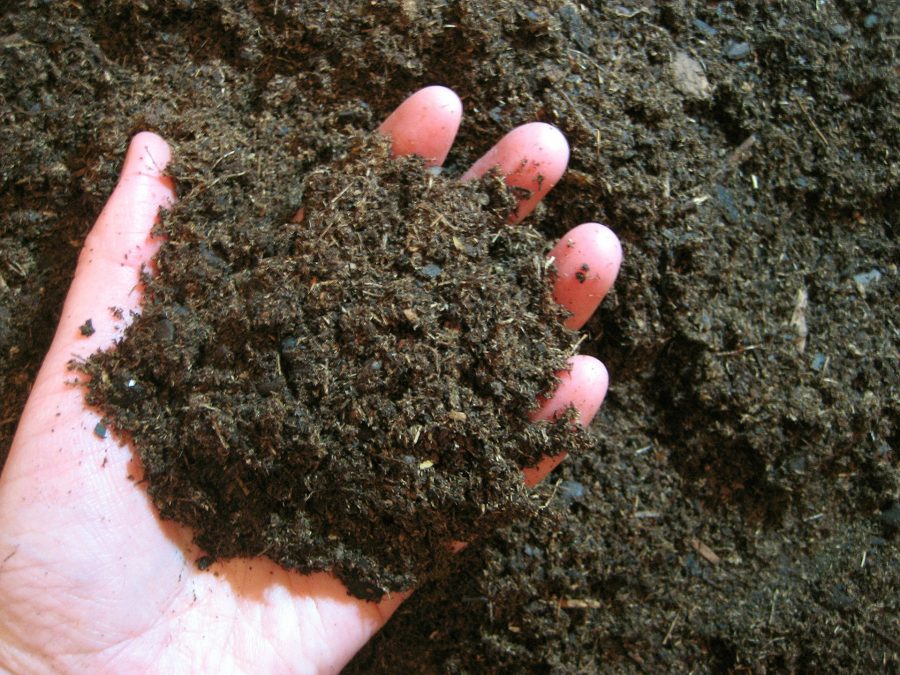
Soil preparation is a critical aspect of starting a backyard garden, involving tasks like adding amendments, compost, minerals, and nutrients to ensure optimal soil conditions for robust plant growth, nutrient uptake, and crop development.
Before planting, testing the soil can provide valuable insights into its pH levels and nutrient content, helping determine the necessary amendments.
Start by clearing the area of weeds and debris to create a clean planting surface.
Loosen the soil using a garden fork or tiller to improve aeration and drainage, breaking up any compacted layers.
Mixing in organic matter like compost or aged manure helps enhance soil fertility and texture, promoting beneficial microbial activity.
Select Plants and Seeds
Choosing the right plants and seeds for a backyard garden entails considering factors such as sunlight requirements, environmental suitability, nutritional value, and pest resistance to create a diverse and thriving garden ecosystem.
Before selecting plants, evaluating the amount of sunlight your garden receives during different parts of the day is crucial.
Some plants thrive in full sun, while others prefer partial or full shade.
Understanding these light requirements ensures the optimal growth of your chosen greenery.
Considering the local climate and soil conditions will help in selecting plants that are well-suited to your environment, leading to healthier plants that require less maintenance.
Look for seeds that provide essential nutrients and vitamins, offering both culinary and health benefits to your family.
Opting for varieties known for pest resistance can help prevent infestations, reducing the need for pesticides.
What are the Benefits of Backyard Gardening?
Backyard gardening offers a multitude of benefits, including improvements in physical and mental health, fostering community connections, imparting valuable educational lessons, instilling responsibility, and creating a harmonious bond with nature.
Engaging in backyard gardening provides an excellent way to stay physically active without feeling like a chore, as tending to plants involves various movements that can enhance strength and flexibility.
The act of nurturing plants and witnessing their growth can be immensely satisfying, contributing positively to one’s mental wellness.
Sharing gardening tips and produce with neighbors can strengthen community bonds, leading to a supportive and interconnected neighborhood environment.
It also presents an opportunity to educate children about the importance of sustainability, biodiversity, and the food production process, fostering a sense of responsibility towards the environment.
Physical and Mental Health Benefits
Engaging in backyard gardening provides significant physical exercise, mental relaxation, exposure to fresh air and nature, access to nutritious produce, and an opportunity to unwind in the serene outdoor environment, contributing to overall health and well-being.
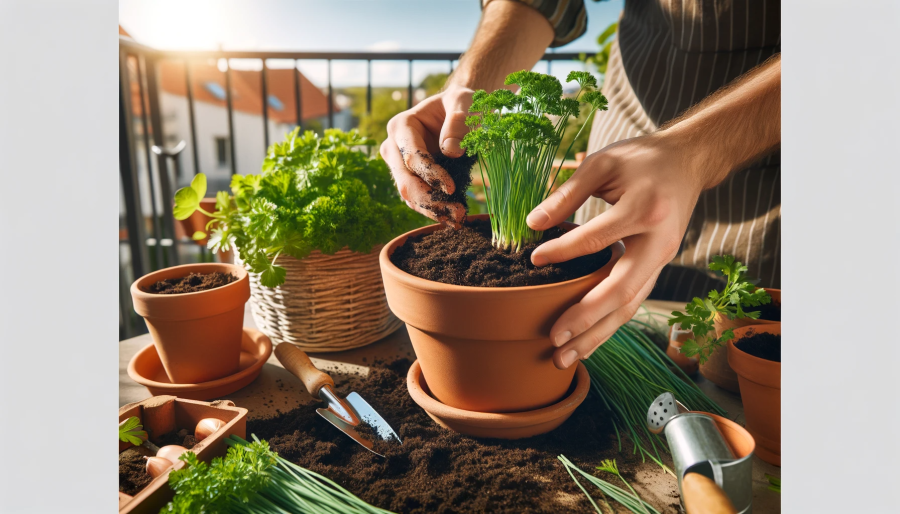
The act of tending to plants, digging, planting, and weeding in a garden offers a full-body workout, enhancing strength, flexibility, and cardiovascular health.
As you bend, squat, lift, and reach, various muscle groups are engaged, promoting endurance and improving overall physical fitness.
This form of exercise is not only effective but also enjoyable, as you connect with the earth and witness the growth of your plants.
Encourages a Sense of Community
Backyard gardening fosters a sense of community by encouraging shared knowledge, collaborative activities, educational experiences, school involvement, children’s participation, and the promotion of healthy habits and social connections within neighborhoods.
This collective engagement in gardening not only brings neighbors together but also strengthens bonds through the exchange of tips, seeds, and produce, creating a vibrant network of support and camaraderie.
Initiatives such as community garden projects and urban farming schemes further enhance the sense of belonging and environmental stewardship among residents, fostering a shared sense of responsibility for the well-being of their local area.
Teaches Responsibility and Patience
Engaging in backyard gardening imparts valuable life lessons such as responsibility, patience, attentive care for plants, proactive pest and disease management, and effective weed control practices, nurturing a sense of stewardship towards the garden ecosystem.
Through the process of tending to a garden, individuals learn to adapt to the needs of different plant species while understanding the impact of climate and soil conditions.
- This helps in developing a keen eye for detail and instills a proactive approach in managing potential threats to plant health.
- Regular observations and swift action against pests and diseases showcase the essence of dedication and vigilance required for maintaining a flourishing garden.
The practice of backyard gardening serves as a hands-on school of life lessons, teaching individuals to be responsible stewards of nature.
Creates a Beautiful Outdoor Space

Backyard gardening enhances outdoor spaces by introducing vibrant flowers, lush grass, functional sheltering elements, fruitful trees, and overall visual appeal, transforming homes into picturesque sanctuaries that add aesthetic value and potential monetary benefits.
Colorful blooms like roses and tulips bring a burst of life and fragrance to the garden, while well-manicured lawns provide a soft carpet for outdoor relaxation and play.
Shelter structures such as pergolas or gazebos offer a cozy retreat amidst nature’s beauty, creating a perfect spot for gatherings or quiet contemplation.
Productive fruit trees like apple or citrus not only yield fresh harvests but also contribute to the greenery and charm of the landscape.
How to Maintain a Backyard Garden?
Maintaining a backyard garden involves regular watering, appropriate fertilization, pest and weed control measures, routine maintenance tasks, attentive care for plants, and timely harvesting of crops to ensure a thriving and productive garden ecosystem.
In terms of watering, it’s crucial to be mindful of your plants’ specific needs, as some may require more water than others.
Establishing a consistent watering schedule, typically in the early morning or late afternoon to prevent evaporation, is key to promoting healthy growth.
- For fertilization, opt for organic options to nourish the soil naturally without harmful chemicals. Regularly check soil pH levels and adjust fertilization accordingly to maintain optimal nutrient balance.
- Implementing integrated pest management techniques can help prevent infestations without resorting to harsh pesticides that may harm beneficial insects.
- Weed regularly to avoid competition for nutrients and space among your plants.
General upkeep tasks, like pruning, mulching, and staking, are essential for promoting plant health and optimal growth.
It’s also important to monitor your plants for signs of disease or distress and take appropriate action promptly.
Knowing the right time to harvest your crops ensures peak flavor and nutrition.
By following these comprehensive maintenance guidelines, you can cultivate a vibrant and flourishing backyard garden.
Water and Fertilize Regularly
Regular watering and proper fertilization are essential maintenance tasks for backyard gardens, ensuring adequate hydration, nutrient supply, optimal plant growth, moisture balance in the soil, and overall health of the garden ecosystem.
Adequate watering not only prevents dehydration stress but also helps nutrients reach plant roots efficiently, promoting lush foliage and vibrant blooms.
Drip irrigation systems or soaker hoses ensure water reaches roots without wastage, conserving resources.
In terms of fertilization, understanding the specific needs of different plants is crucial.
Nitrogen-rich fertilizers boost leaf growth, while phosphorus aids in root development, and potassium supports overall plant health.
Regular fertilization enhances soil fertility, providing a steady supply of essential nutrients for sustained growth and resilience.
Keep Pests and Weeds at Bay
Preventing pest infestations, managing weed growth, enhancing plant resistance to diseases, implementing effective weed control methods, and incorporating composting practices are vital strategies for maintaining a healthy and pest-free backyard garden.
In terms of pest prevention, the first line of defense is often cultural practices such as crop rotation and companion planting, which disrupt pest life cycles and create a less favorable environment for them.
Introducing beneficial insects like ladybugs and praying mantises can also help keep pest populations in check naturally.
For weed eradication, regular weeding, mulching, and using organic herbicides like vinegar can be effective in keeping unwanted plants at bay.
To increase plant resilience against diseases, selecting disease-resistant varieties and maintaining proper spacing between plants for good air circulation are essential measures.
Sustainable weed control methods, such as hand-weeding, flame weeding, and using cover crops to outcompete weeds, are not only effective but also environmentally friendly.
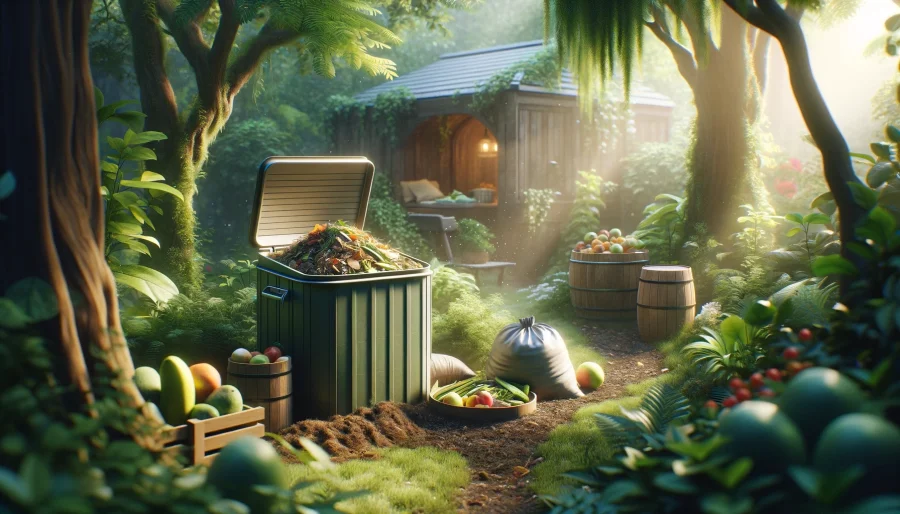
Composting is an critical practice for organic garden health, providing nutrient-rich soil amendments that promote plant growth and improve soil structure.
The benefits of composting extend beyond nutrition, as it also aids in water retention and reduces the need for synthetic fertilizers, contributing to the overall sustainability of the garden ecosystem.
Harvest and Prune as Needed
Timely harvesting of crops, regular pruning of plants, seasonal fruit picking, attentive care during growth phases, and proactive maintenance activities are essential practices for ensuring a fruitful and well-maintained backyard garden throughout the year.
Harvesting at the right moment is crucial as it ensures optimal taste and nutrient content in the produce.
For most vegetables, harvesting should be done when they are ripe but still tender.
Pruning, on the other hand, helps in promoting healthy growth and improved air circulation within the plant, reducing the risk of diseases.
Knowing the seasonality of fruits in your garden allows you to plan accordingly and enjoy fresh harvests throughout the year.
What is Backyard Gardening? FAQs
Q. What is Backyard Gardening?
A. Backyard gardening is the practice of growing and cultivating plants, fruits, vegetables, or herbs in an outdoor space that is usually located in the backyard of a home.
Q. Why should I start backyard gardening?
A. Backyard gardening is beneficial for both physical and mental health. It provides a source of fresh, organic produce and serves as a relaxing and fulfilling hobby.
Q. Do I need a large space for backyard gardening?
A. No, you do not need a large space for backyard gardening. Even a small balcony or patio can be used to grow plants in containers or in vertical gardens.
Q. What types of plants can I grow in my backyard garden?
A. You can grow a variety of plants in your backyard garden, including vegetables, herbs, fruits, flowers, and even trees. Just make sure to choose plants that are suitable for your climate and growing conditions.
Q. Do I need any prior gardening experience to start backyard gardening?
A. No, you do not need any prior gardening experience to start backyard gardening. It can be a fun and learning experience for beginners, and there are many online resources and communities that can provide guidance and support.
Q. How can I make my backyard garden more sustainable?
A. You can make your backyard garden more sustainable by using organic gardening methods, composting, and using water-saving techniques such as drip irrigation. You can also choose to grow native plants that require less maintenance and resources.
What is Backyard Gardening? Conclusion
Backyard gardening is more than just a hobby; it’s a sustainable practice that enriches our lives in numerous ways.
From promoting physical and mental health to fostering community bonds and teaching valuable life lessons, the benefits of backyard gardening are vast and varied.
Whether you’re a seasoned gardener or a curious beginner, starting a backyard garden can be a rewarding and fulfilling endeavor.
- Promotes Health and Well-being: Tending to a garden provides physical exercise and mental relaxation.
- Strengthens Community Ties: Sharing knowledge and produce can bring neighbors together.
- Teaches Valuable Skills: Gardening imparts lessons in responsibility, patience, and stewardship.
- Beautifies Outdoor Spaces: A well-maintained garden enhances your home’s aesthetic and potential value.
Backyard gardening invites us to connect with nature, enjoy fresh produce, and contribute to a healthier planet.
It’s a step towards a more sustainable and fulfilling lifestyle. So why not grab a shovel and start your gardening adventure today?
Related Content
Visit my Amazon Influencer Page for videos and gardening products Grow Your Own Garden




